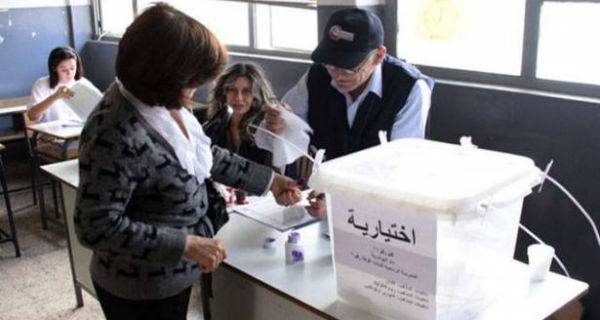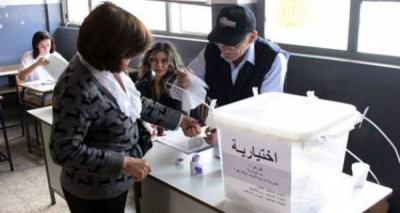Twelve days have passed since the beginning of the constitutional period for electing a new president, with only 49 days remaining of President Michel Aoun's term. The country faces urgent challenges in the upcoming weeks and months, as concerns extend beyond the election of a new president to include pressing economic, social, educational, and living conditions. The heavy burdens weigh heavily on the Lebanese, as their incomes decline and purchasing power diminishes. Poverty in Lebanon has reached alarming levels, affecting approximately 74% of the population. When considering broader aspects of income, such as health, education, and public services, the percentage of those living in multidimensional poverty rises to 82% of the population. This data comes from a study published by the United Nations Economic and Social Commission for Western Asia (ESCWA) in early September last year titled "Multidimensional Poverty in Lebanon: A Harrowing Reality and Bleak Prospects." What is the situation one year later, given these alarming indicators? This comes amid rising crime rates, where between January and August 2022, for instance, 737 car thefts, 130 murders, 3,558 thefts, and 92 suicides were recorded according to "International Information."
In any case, Lebanon faces multiple obligations, starting with the approval of the 2022 budget, progressing through the presidential election, and the formation of a new Lebanese government, not to mention the various political disagreements. Attention also turns to the postponed municipal and optional elections, which were delayed for a full year due to their overlap with parliamentary elections in May.
In this context, many questions are raised by mayors and members of municipal councils about the state's capabilities to carry out this democratic obligation at the local administration level, amid the current uncertainty surrounding the presidential election and the multifaceted crises facing Lebanon and its people. Notably, as of the end of August, the number of municipalities in Lebanon reached 1,055, with each municipal council comprising between 9 and 21 members, except for the municipalities of Beirut and Tripoli, where each council consists of 24 members, distributed as follows:
- Beirut: One municipality.
- Mount Lebanon consists of six districts with a total of 330 municipalities distributed as follows:
- Metn: 56 municipalities.
- Baabda: 48 municipalities.
- Chouf: 75 municipalities.
- Aley: 57 municipalities.
- Jbeil: 40 municipalities.
- Kesrouan: 54 municipalities.
- The North consists of six districts with a total of 152 municipalities distributed as follows:
- Tripoli: 5 municipalities.
- Minieh-Denniyeh: 36 municipalities.
- Batroun: 30 municipalities.
- Bsharri: 12 municipalities.
- Zgharta: 32 municipalities.
- Koura: 37 municipalities.
- Akkar has 132 municipal councils.
- The Bekaa, which consists of three districts, has 78 municipalities distributed as follows:
- Zahle: 30 municipalities.
- Western Bekaa: 31 municipalities.
- Rashaya: 26 municipalities.
- Baalbek-Hermel consists of two districts with 83 municipalities distributed as follows:
- Baalbek: 75 municipalities.
- Hermel: 8 municipalities.
- The South consists of three districts with a total of 151 municipalities distributed as follows:
- Sidon and the villages in Sidon District (Zahrani): 48 municipalities.
- Jezzine: 39 municipalities.
- Tyre: 64 municipalities.
- Nabatieh consists of four districts, with a total of 119 municipalities distributed as follows:
- Nabatieh: 40 municipalities.
- Bint Jbeil: 36 municipalities.
- Hasbaya: 17 municipalities.
- Marjeyoun: 26 municipalities.
According to the Law on Mukhtars and Optional Councils: "Any populated place that has more than fifty residents is managed by one Mukhtar assisted by an optional council. A village with a smaller population is managed by a Mukhtar and the council of the nearest village."
According to the 2016 elections, the number of Mukhtars in Lebanon was 2,387, with the city of Beirut having the largest number of Mukhtars (108), followed by Tripoli (51), Sidon (23), Baalbek (18), Tyre (16), Zahle (16), Mina (12), Bint Jbeil (11), Zgharta (11), and more. This number has certainly increased in the six years since those elections, along with the deaths of several Mukhtars in various Lebanese regions, making it urgent to hold these elections and renew the optional councils, especially since the Mukhtar acts as a link between the citizen and the state.
In addition to the routine tasks that Mukhtars are familiar with, they have other responsibilities including travel transactions, inheritance management, mortgage or sale contracts, legal verification of signatures, issuing certificates for property reservations, listing estate inventories, and maintaining records of personal status. Additionally, the Mukhtar's duties involve financial matters, assisting tax collectors in collecting taxes, managing confiscation transactions on properties, and helping financial officials with their duties in the area, as well as matters relating to judicial, real estate, agricultural, health, education, and fine arts affairs, such as encouraging parents to send their children to school and preserving historical buildings, among others.




